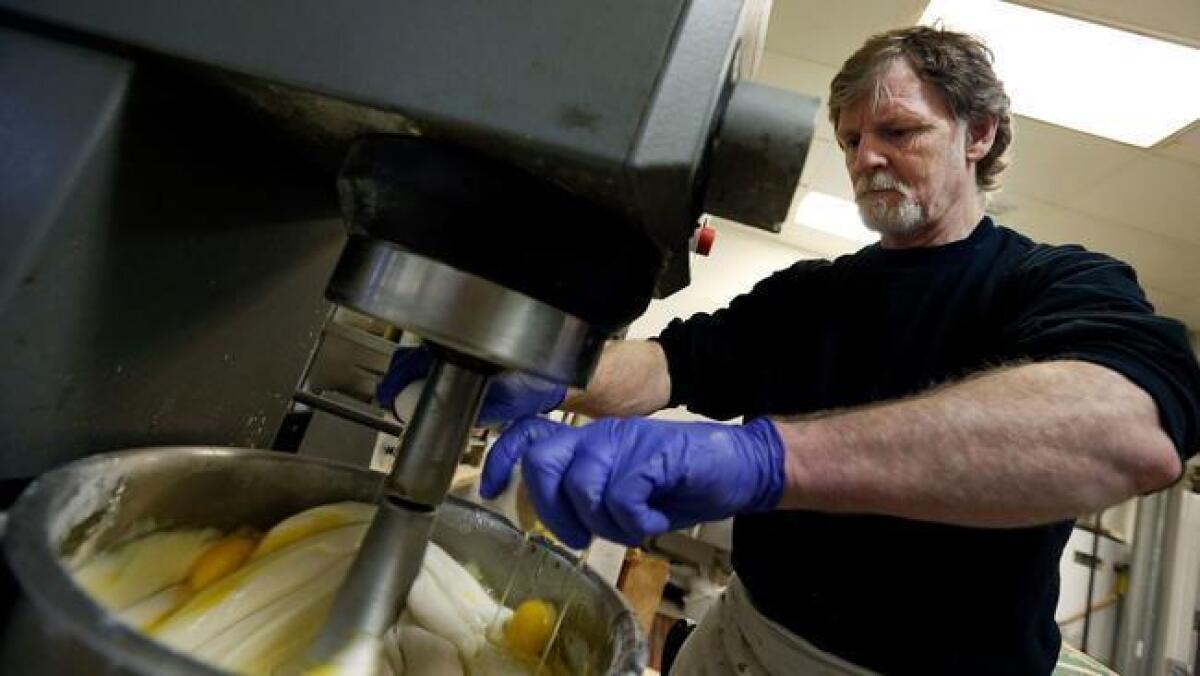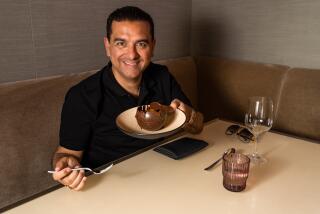Opinion: Same-day silence from the Supreme Court on the wedding-cake case

The Supreme Court heard arguments Tuesday morning in the case of Masterpiece Cakeshop vs. Colorado Civil Rights Commission, a.k.a. the “gay wedding cake case.”
But unless you were lucky enough to be at the court, you’ll have to wait until Friday to listen to the justices’ questions and the lawyers’ answers. That’s when the court will post an audio recording of the arguments on its website. (A transcript will be posted Tuesday afternoon.)
The absence of same-day audio in this case contrasts with the situation on April 28, 2015, when the justices last heard arguments in a major case involving gay rights: Obergefell vs. Hodges. That was the case that, two months later, produced a decision establishing a constitutional right to marry for same-sex couples. Reporters and citizens alike could listen to the Obergefell arguments a few hours after they occurred.
Masterpiece Cakeshop is arguably a less consequential case than Obergefell, but it has attracted enormous public interest. Would-be spectators (and placeholders) began camping out Friday on the sidewalk in front of the court in hope of winning a place at Tuesday’s arguments.
The fascination with the case isn’t hard to understand. It involves a conflict between the right of a same-sex couple under Colorado law to be free from discrimination in public accommodations vs. the (asserted) 1st Amendment right of a Christian “cake artist” not to bake a “custom” wedding cake that contradicts his religious beliefs. (Here’s The Times’ editorial board’s take on the issues in the case.)
Both the baker, Jack Phillips, and the couple, Charlie Craig and David Mullin, have become minor celebrities.
The combination of legal significance and human interest makes this case an obvious candidate for same-day audio. Yet the court is making us wait.
Why? One theory is that the justices have soured on same-day audio. They supposedly fear that excerpts from their questions — the dreaded “sound bites” — are more likely to be used in news reports if they are available the same day than if journalists must wait a few days to access them.
That may be true. But if that’s what concerns the justices, they’re being petty and patronizing. Even if one thinks that news broadcasts will air excerpts from the arguments “out of context” (itself a silly objection), posting audio of the entire argument allows citizens to place a “sound bite” in context. That’s the sort of engagement with its work that the court should be encouraging.
Periodically, members of Congress will propose that the Supreme Court be forced by legislation to open its public proceedings to television cameras, a much greater intrusion than same-day, delayed audio. If the justices want to fend off such initiatives, they would be wise to act on their own to be more transparent. Posting audio of every argument on the same day would be a painless way to demonstrate their good faith.
Follow the Opinion section on Twitter @latimesopinion and Facebook
More to Read
A cure for the common opinion
Get thought-provoking perspectives with our weekly newsletter.
You may occasionally receive promotional content from the Los Angeles Times.











